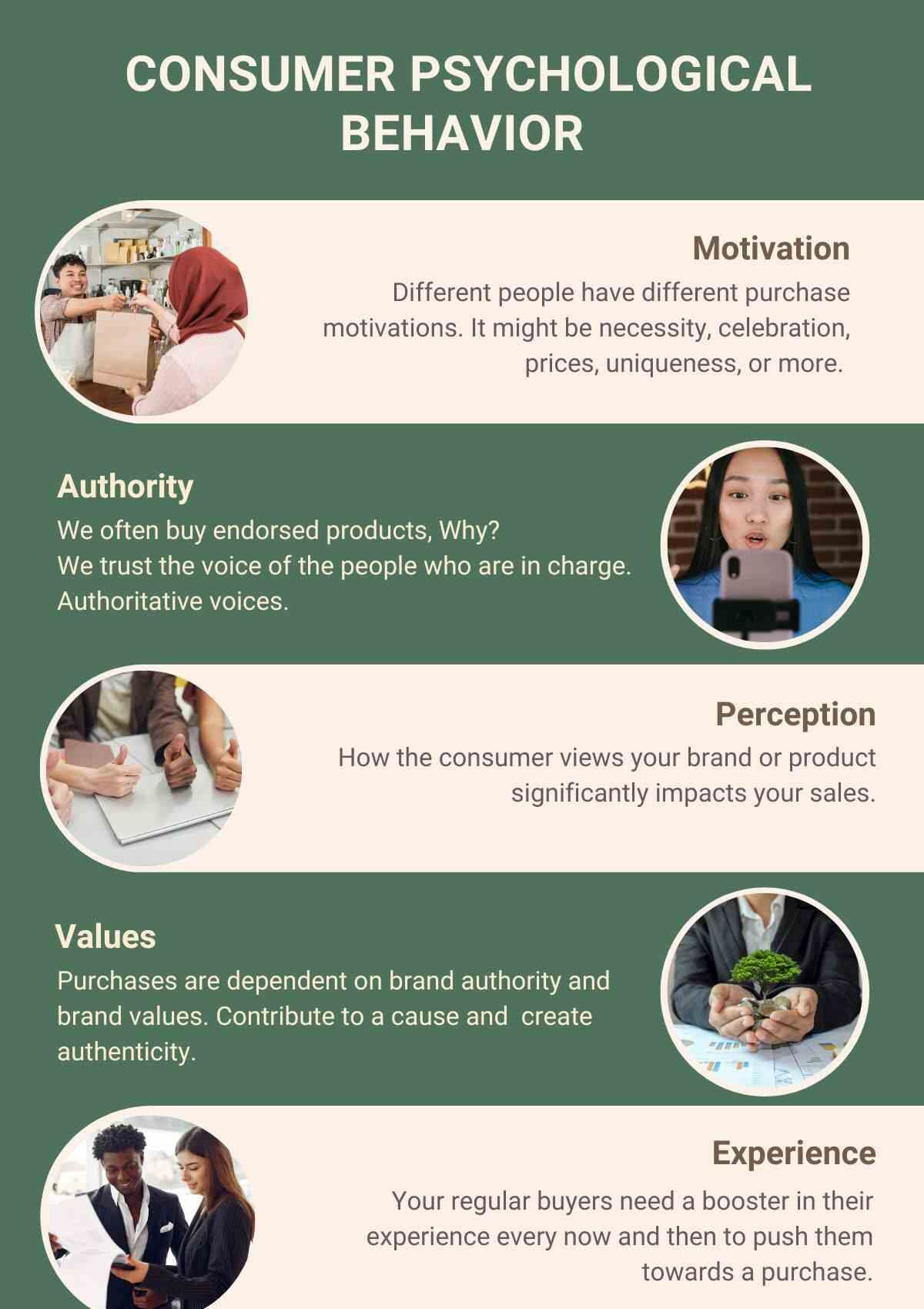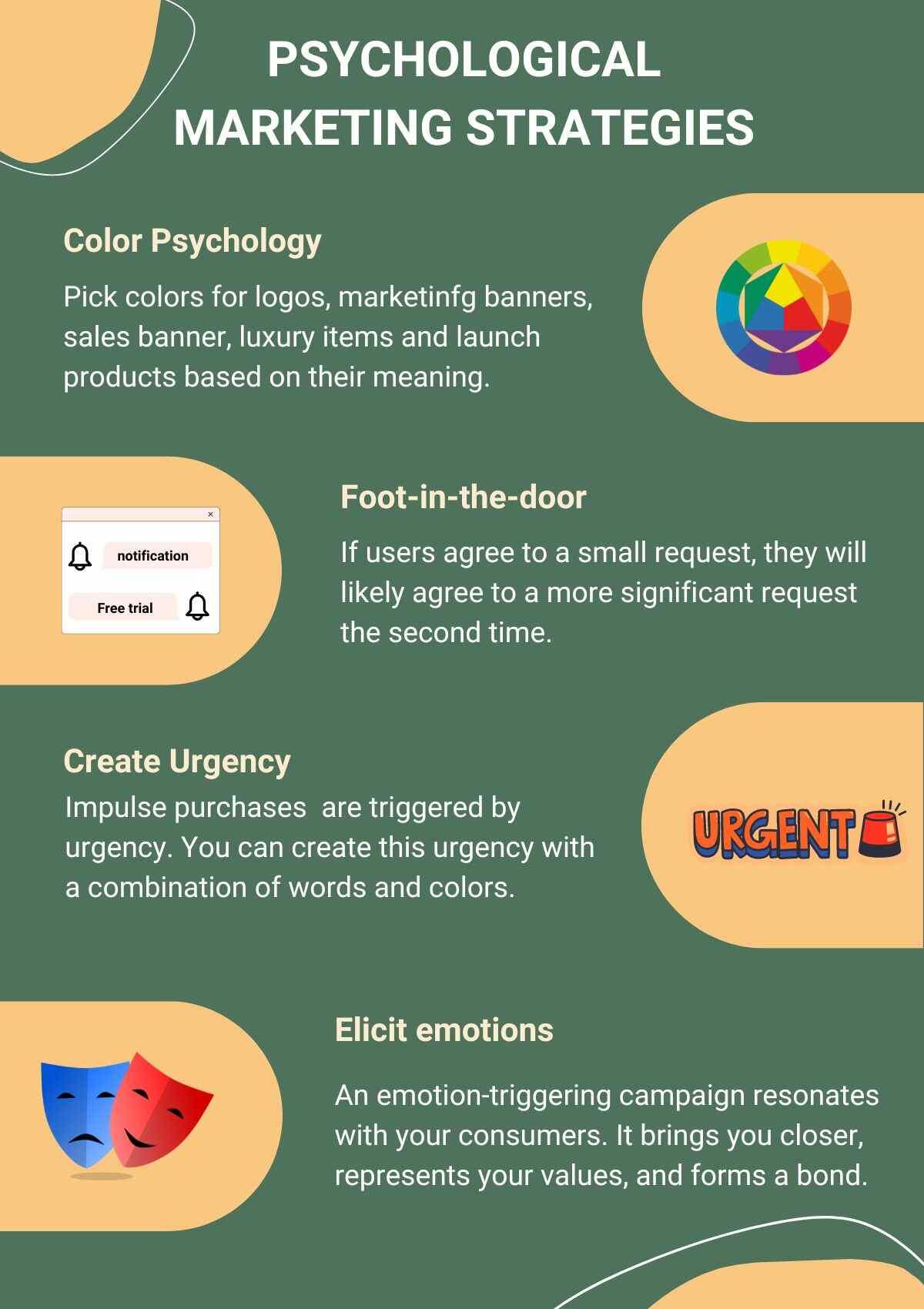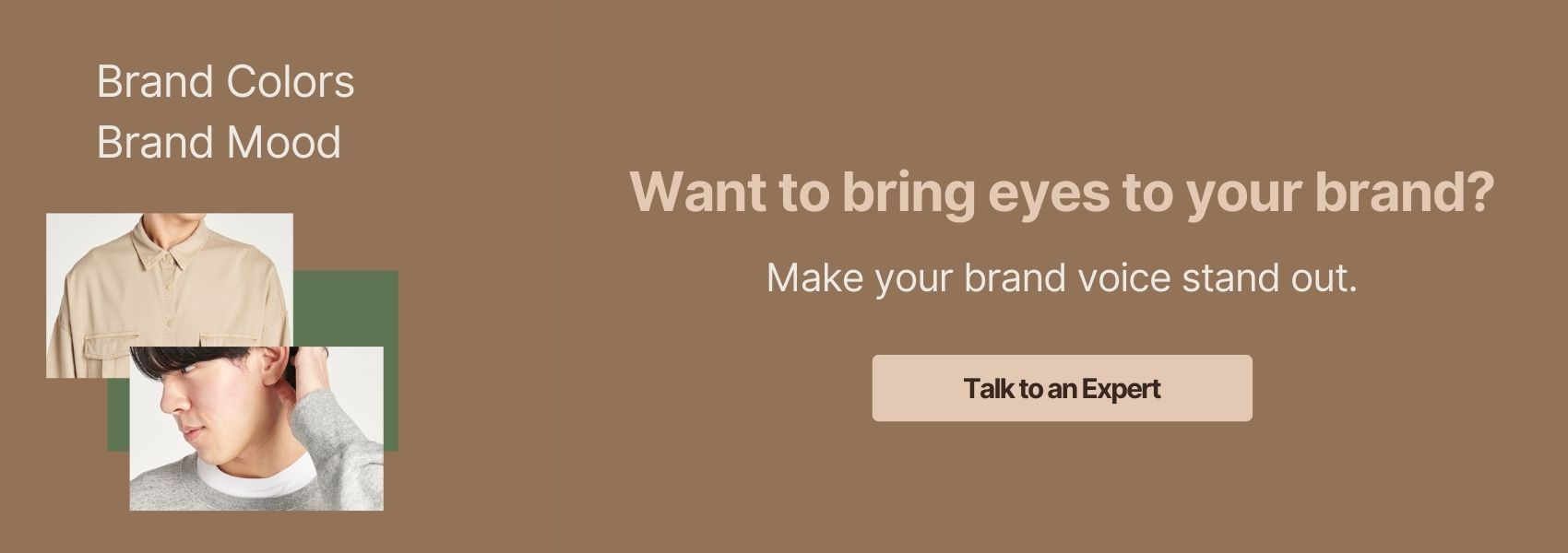You bought two dresses at the price of one when you just need one.
Why?
To avail a special offer!
The second dress might have been average but the offer was just too tempting to let go.
These psychological marketing strategies pull consumers to conversion and prompt them to buy.
The prompters and reasons behind your customers' sales decisions are marketing psychology.
In this blog, we will see two sides of consumer psychology:
- Consumer psychological behavior towards advertising.
- What psychological marketing strategies to adopt for sales conversion?
Without further ado, let’s get started.

Consumer’s Psychological Behaviors Towards Advertising
Perhaps you see a ‘limited offer’ banner at the top of the page.
Or you saw the ‘Cyber Monday’ sale coming up.
Customers have triggers that prompt them to buy something.
You, too, are a consumer enticed by one factor.
- Motivation
What is your purchase motivation?
It might be necessity, celebration, prices, uniqueness, or more.
Different marketing messages from ‘latest collection’ to ‘last four pieces left’ will motivate different buyers. One of them will encourage you too.
- Authority
Did you buy something endorsed by your favorite celebrity?
We know why you did it.
You trust the voice of the people who are in charge.
If Rihanna recommends music, you will listen, or if Gigi recommends makeup, we buy.
Such psychology in advertising makes celebrity endorsements and influencer marketing a success.
- Perception
We call it POV these days. Point of View.
How the consumer views your brand or product significantly impacts your sales.
When they see a ‘sale’ board or banner in red, it creates a sense of urgency.
We are just so used to seeing “SALE’ in red that any other color will simply miss our notice.
Let’s consider other colors.
Do you know what yellow and orange represent?
Happiness and warmth, respectively!
Think McDonald's and Home Depot.
What you perceive about a brand has a lot to do with the color psychology used in branding, marketing, and brand values.
- Values
Your values are a big part of psychology in sales and marketing. Why?
Ad print represents Volkswagen's brand value.
Because purchases these days are dependent on brand authority and brand values. How does your marketing create a belief system?
You do this by creating authenticity in your niche. It will increase not only your consumer’s trust but also likability.
Jordan’s superfans, Adidas customers, and Nike enthusiasts are some great examples of different brands in the same niche.
- Experience
Psychology is for both- new consumers and your regular buyers.
Your regular buyers know you.
They know your campaigns, festive picks, and most of all, your values.
These people need a booster in their experience every now and then to push them towards a purchase.
What psychological marketing strategies to adopt for sales conversion?
Why you put in an advertisement is intentional and eye-catching.
Ads are meant to elicit a reaction.
This reaction is sales.
Advertising always comes with a sales purpose.
Above we have discussed some human behaviors and thinking patterns that impact sales. Now, we see HOW to use them in your marketing strategies.

- Colors
Color psychology in branding and marketing is the basis of everything from brand logos to seasonal banners and premium products.
Let’s take a look at Green.
Green is directly associated with relaxation. Take its correlation to nature and put it in brand logos like Starbucks.
More so, the Starbucks siren has a pretty interesting backstory, kicking in our curiosity and provoking an imagination of mermaids and seas.
- Foot-in-the-door
If users agree to a small request, they will likely agree to a more significant request the second time.
It is a ‘Foot-in-the-door’ technique.
Games marketing uses this simple psychology a lot. You try a mini-game within an ad, and now they ask you to download it.
In other words, if a user agrees to sign up, they are likely to also agree to a free trial.
- Urgency
Creditcards.com, in a survey, found that 84% of people make impulse purchases.
Remember when you were browsing for a birthday gift at Macy’s, but a last-piece sale outfit caught your eye?
Or the time you bought the limited edition perfume from Kim’s collection?
Those are impulse purchases triggered by urgency.
- Emotions
Marketing is about triggering emotions.
When was the last time you saw an emotional campaign?
How often do you buy from brands dedicated to a cause?
Why do you think health-related ads elicit more responses than most advertisements?
Why do baby products market around your toddler’s first step or the first day of school?
Answer- Because an emotion-triggering campaign resonates with your consumers.,
It brings you closer, represents your values, and forms a bond.
Conclusion
Psychology has been a part of marketing since its analog days.
Hawkers will sell their products at a cheaper rate for more sales.
The restaurants will run a seasonal offer at Thanksgiving, saying ‘feels like home-cooked meals..
And 5-star hotels will elicit exclusivity with talks to membership privileges.
It is psychological advertising.
With digital purchases, ‘home-cooked meals’ or ‘exclusive membership’ can be found on social media and websites.
Now that you know some effective methods, start marketing now.
Or better, let us do it for you!


